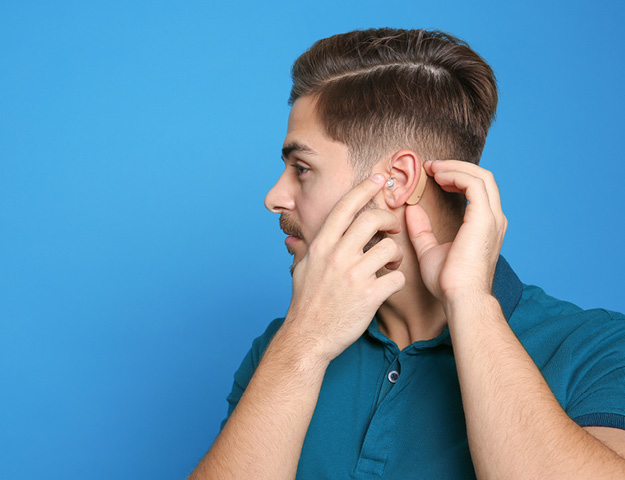Hearing loss is like any other important health-related issue — it should not be neglected. Did you know that hearing loss is one of the most common health problems in our country, affecting 30 to 48 million Americans? It is estimated that one in three people older than 65 are affected by hearing loss.
By: Rachel Spinuzza, Suwanee ENT Audiologist
Hearing loss can be caused by noise, aging, disease, ototoxic drugs, or it can be hereditary. Several common risk factors of hearing loss include smoking, cardiovascular events, hypertension, and diabetes. Age-related hearing loss is one of the most common types. However, the majority of people with hearing loss are actually below retirement age. Hearing loss is most often caused by damage to the cochlear hair cells. Over time, the aging process and chronic noise exposure can cause the hair cells to degenerate and auditory sensitivity is permanently lost.
Consider the following: Are you withdrawing from conversations? Do you feel frustrated trying to communicate in group situations? Are you beginning to limit or modify your social activities? If so, you may be experiencing the negative effects of hearing loss. Frequent symptoms of hearing loss can include tinnitus (ringing, buzzing, hissing, clicking, whistling, roaring, etc.), having trouble hearing over the telephone, difficulty following conversations with two or more people, often asking people to repeat what they are saying, needing to turn up the TV volume, difficulty understanding women and children speaking, and difficulty in background noise situations.
Several studies link untreated hearing loss to negative effects on the human brain, particularly as people age. The John Hopkins School of Medicine conducted a long-term research with hearing loss. Their studies showed a correlation between untreated hearing loss and early signs of dementia and Alzheimer’s disease. The researchers found that adults with hearing loss are two times more likely to develop dementia, adults with moderate hearing loss are three times more likely to develop dementia, and adults with severe hearing loss are five times more likely to develop dementia. Participants from the study reported that with the use of amplification, quality of life and overall rates of happiness improved.
Perhaps you think that hearing instruments won’t help you or that they are too expensive. Today there are hearing instruments designed to help all degrees of hearing loss. The technology is designed to help reduce unwanted noise, help you focus on sounds of interest, and locate where they are coming from. According to a report in 2012 by Healthy Hearing Magazine, most adults wait an average of 5 to 7 years before seeking help for hearing loss and tinnitus. Researchers have also concluded that the longer the delay, the harder it may be for the brain to adjust to hearing aids due to long term auditory deprivation. Making the decision to have your hearing tested is the first step towards improving your quality of life. Treating hearing loss begins with a comprehensive test to determine the severity and type of hearing loss. From there, hearing aids are recommended based on the individual’s hearing needs as well as listening preferences, budget, and lifestyle needs. Call us with any questions you have about the topic, or to schedule a hearing evaluation. We can help you find a solution that best suits your hearing, lifestyle, and budget.
Suwanee ENT is located at 4320 Suwanee Dam Road, Suite 200. 770-538-1818, ENTSuwanee.com.













